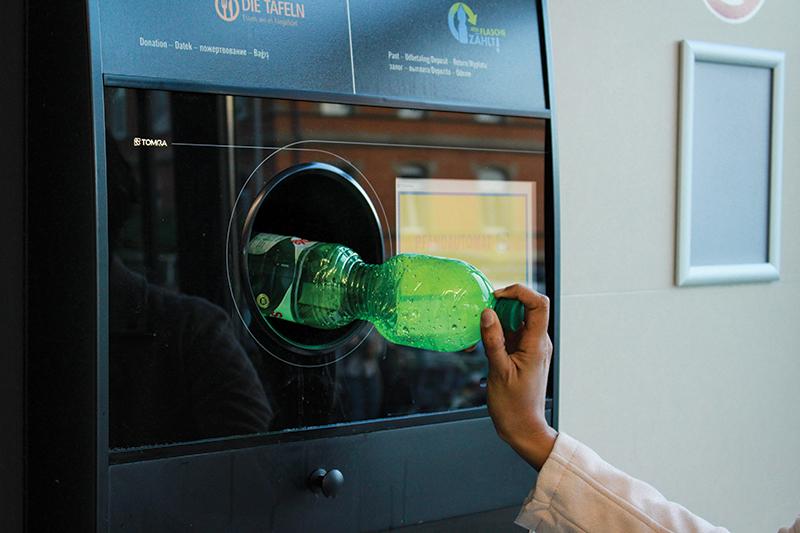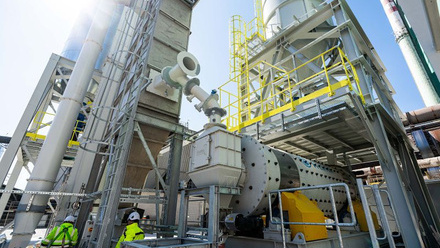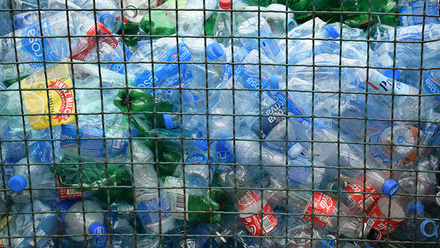Message in a bottle – the policies to deal with UK plastic waste
With COP26 approaching and environmental targets becoming more pressing, a Westminster Forum event discussed some of the policies being proposed to deal with the UK’s plastic waste.

In 2017, the UK processed 3.4Mt of plastic waste with roughly a third going each to incineration, landfill and recycling, according to a UK Research and Innovation (UKRI) report entitled, The ‘P’ word.
It reads, ‘The limited recycling capacity of the UK meant that only 0.4Mt of the total 1.1Mt sent for recycling, was processed locally. The remaining 0.7Mt of ‘recycled’ plastic waste was sent overseas, yet, with little assurance that recycling was actually undertaken in these countries.’
During the Westminster Forum event 'Next steps for tackling plastic waste in the UK,' experts discussed some of the ways the UK is addressing the problem.
Extending responsibilities
Steve Palfrey, Chair of the Association of Directors of Environment, Economy, Planning and Transport (ADEPT) Waste Group noted that, ‘There’s an Environment Bill working its way through...Parliament at the moment which includes a number of key measures to deal with improving waste management in this country.’
Palfrey explained how Extended Producer Responsibility (EPR) is one of the key tenets. According to this policy, ‘the brands that are producing these products that result [in] packaging waste, [would] have [a] real skin in the game in terms of ensuring the right environmental outcomes for that material.
‘That [would] drive up both the quantity of material [that] is recycled, but also focus industry on reducing the quantity of material that's used…and on product design to increase recyclability, because that's how industry will minimise its costs in terms of dealing with packaging waste.’
He explained that EPR may help tackle a bigger issue ‘which is that, at the moment, our economy doesn't really factor in the environmental costs of dealing with waste and dealing with products we buy.
‘But it will also help fund improvements in recycling systems, higher capture rate, more consistent systems across the country, to capture a wider range of materials.
‘The other part of EPR is that it means that the brand will care what the public do in terms of the packaging waste that they have…because it will have a direct financial impact [on them] whether people recycle, whether they litter, whether they put their material in the refuse.’
Barry Turner from the British Plastics Federation, UK, added, ‘We've done an awful lot of work on design guides, but EPR…must actually drive the right outcomes. And by that it's got to drive lower climate change. And, at the moment, EPR makes a passing reference to [reducing climate change], but we're yet to see that it's sort of embedded in some of the basic principles.’
Turner also addressed what he noted as a cultural issue of littering. ‘There are also outlines of proposals as to how producers will also be required to contribute towards the cost of littering [because] we have an issue in this country, and we need to address it. And it's not just a case of passing the buck for who actually covers the cost. It's an issue of re-education. It's an issue of changing people's attitude.’
Taxing times
Palfrey and Turner discussed the key role that the new Packaging Tax (set to be implemented from April 2022) will play in the development of a circular life-cycle for plastics.
The tax will be applied to plastic packaging produced in, or imported into, the UK that does not contain at least 30% recycled content. It will affect UK producers, importers, business customers of producers and importers, and consumers.
Palfrey explained, ‘That's really important…[It could be] a real game changer in terms of driving markets for plastics recycling, and the economics of plastics recycling.’
Turner, on the other hand, noted that the tax needs to evolve. ‘It is a bit blunt. It doesn't incentivise improvement. And, I too, would like to see, as we move forward with the tax, that it does evolve and becomes a smarter tax.
‘I'd also like to [see] that the money raised through the tax [is] directed to help us build a world-class recycling system in the UK. For too long, we've been dependent on exporting far too much of our waste. And that's whether it's plastics, textiles, etc. We've got a golden opportunity here to turn the dial back and build a greener economy in the UK.
‘And as part of that, I think we're missing a bit of a trick if we do not put some sort of target in place going forward to gradually reduce and wean ourselves off our exporting of plastic waste.’
Returning packaging
Lewis van Diggele, Public Affairs Manager at the British Soft Drinks Association, UK, explored the possibilities presented by the upcoming Deposit Return Scheme (DRS). 'In a nutshell, [it] is all about incentivising consumers to do the right thing and…return their containers. So that we can get a clean separated stream, and hopefully get a circular system going to turn this [material back] into new packaging,' he explained.
'If we can do that, it will boost our members' ability to put increasing amounts of recycled content into their packaging, and it will reduce our reliance on virgin materials. So, a win for the wider environment.'
Orla Woods, Senior Consultant at Eunomia Research and Consulting, UK, added, ”Deposit systems are primarily introduced to increase the recycling rate of beverage containers…[and] can achieve return rates over 90%.
'A well-defined single-stream collection reduces contamination and provides food-grade, recycled material that can be used to increase the recycled content of new beverage containers.'
Woods also explained that these systems can help reduce littering by a third. 'There are then [other] additional benefits. For instance, we estimated a few years ago [that] a DRS in the UK could create more than 4,000 jobs, and the increased recycling and reduction in landfilling and incineration also reduces greenhouse gas emissions and other air pollutants.'
She explained that to realise these potential aims, it is crucial to get the operation right. 'High-performing systems…have a single centralised deposit system operator that is owned by the beverage and retail industry.
'Businesses need some control over the system…and we need the whole industry to work together. And this approach also promotes accountability, transparency, and it's more efficient and pleasant and achieving economies of scale.
“The government's role is then limited to oversight and scrutiny. It's important that they set statutory targets. But it's best to avoid specifying too many details in legislation, as this prevents the system from adapting and evolving over time.'
Beyond recycling
Despite recognising the importance of recycling, some panellists argued that there is too much focus on recycling over reducing and reusing waste.
'Despite the rhetoric, I'd say that the government hasn't yet even taken advantage of the low hanging fruit and the easy opportunities to get rid of some of the…avoidable waste,' said Libby Peake, Head of Resource Policy at Green Alliance, UK.
'And the example that you see here is about the…microbeads ban that the government brought in. They brought it in in 2018 and they're still talking about it. The Queen's Speech described it as one of the world's toughest bans on microbeads in rinse-off personal care products in 2018. [And] I think the key bit there is that it is very limited. It's only on rinse-off personal care products.
'Rinse-off cosmetics account for a very small proportion of intentionally added micro-plastics, they're less than 10%. So that leaves a very large amount of intentionally added micro-plastics that still find a way into the open environment that the ban hasn't tackled. The EU has actually legislated through its chemicals legislation to bring in a much more ambitious ban…preventing more than 90% of intentionally-added micro-plastics from reaching the environment.'
IOM3 has submitted written responses to the Extended Producer Responsibility (EPR) for Packaging and Introducing a Deposit Return Scheme (DRS) in England, Wales and Northern Ireland consultations. Over 10 weeks, IOM3 worked with nine partners to deliver a series of cross-supply chain collaborative webinars, hosted an online event looking in more detail at the materials specific aspects, and heard members’ views through a series of workshops and surveys to best inform its responses.









